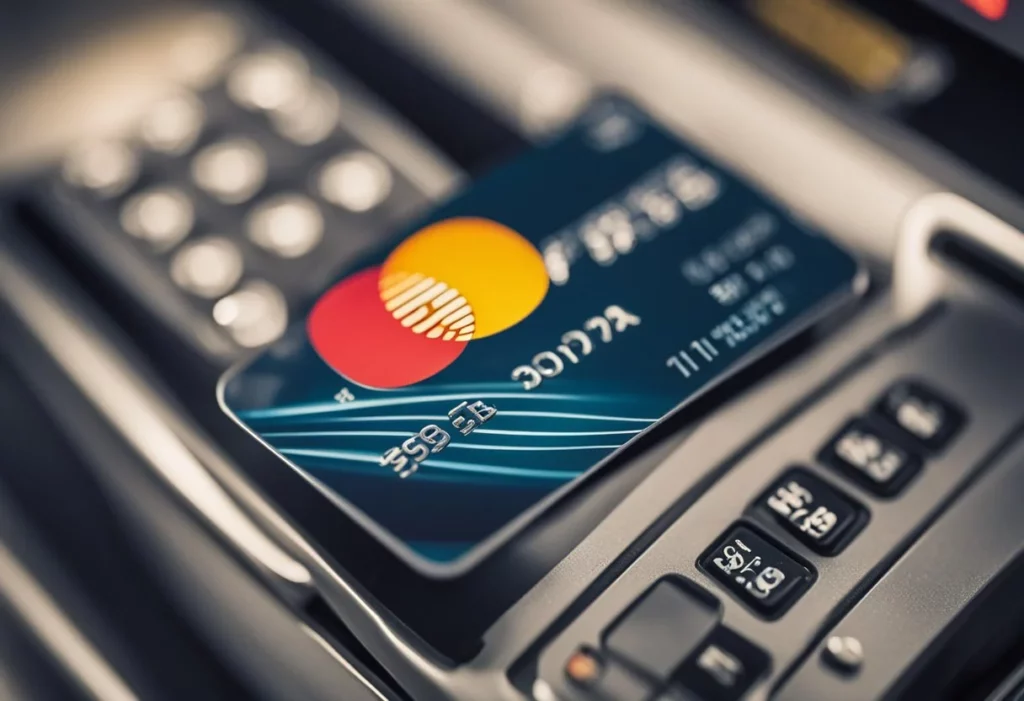Paying traffic citations in Florida can initially seem confusing. However, we’re here to help simplify the process and make it easier for you to understand your options.
Generally, when you receive a traffic ticket in Florida, you have three main alternatives to choose from. You may decide to pay the fine, contest the citation, or attend a driver improvement course.
Before making a decision, it’s crucial to be aware of the potential consequences of each choice.
Paying the fine may result in points being assessed against your driver’s license, while contesting the citation could completely dismiss it but may require more time and effort.
Choosing to attend a driver improvement course can prevent points from being added to your license as well as potentially lead to a reduction in your insurance premiums.
In the following sections, we will discuss the step-by-step process for each option, including payment methods and additional requirements you should be aware of.
Our aim is to guide you through the process so that you can make an informed decision about the best way to handle your Florida traffic citation.

Guide to Paying FL Traffic citations
One popular method of making Florida traffic citation payments is using the PayFLClerk service. The PayFLClerk.com online platform allows us to pay Florida traffic fines online securely and quickly.
Follow the instructions provided on the PayFLClerk website(www-PayFLClerk.Com), and be sure to have the citation number and required personal information on hand.
Alternatively, we can pay the fine by mail. To do this, send a check or money order made payable to the Division of Motorist Services. Make sure to include your Florida driver record number and the citation number on the check or money order. Send it to the following address: P.O. Box 5775, Tallahassee, Florida 32314-5775. Allow ten business days for processing.
For those who prefer to pay in person, visit the Clerk of Court’s office in the county where the violation occurred. The address can be found on the front of the citation or by searching the Florida Court Clerks & Comptrollers website. Payment options may vary by county, so it’s best to have cash, a check, or a credit card prepared.
Additionally, some traffic citations can be paid over the phone. Refer to your traffic ticket or contact the relevant Florida traffic court for more information about phone payment options.
How do I find the citation number on a Florida ticket?
To locate the citation number on a Florida traffic ticket, look at the top right corner or near the middle of the citation. The citation number is typically a combination of letters and numbers. Remember that it is essential to have this number when paying for your ticket or looking up information about it.
What is the process to pay a traffic ticket online in Miami?
To pay a traffic ticket online in Miami, visit the PayFLClerk or website of the Clerk of the Court for the county where the ticket was issued. You will need your citation number, driver’s license number, and credit or debit card to make the payment. Follow the on-screen instructions to complete the payment process. Keep in mind that there may be a small convenience fee when paying online.
What are the consequences of not paying a traffic citation in Florida?
If you choose not to pay a traffic citation in Florida, it can lead to several consequences, including increased fines, driver’s license suspension, and even an arrest warrant. Failing to pay your citation within 30 days can result in an additional late fee. Furthermore, the Florida Highway Safety and Motor Vehicles Department may suspend your driver’s license until you pay the citation. Delinquency in payment may also lead to an arrest warrant being issued. We recommend paying your citation on time to avoid these penalties.
Types of Traffic Tickets in Florida

In Florida, we can classify traffic tickets into two main categories: moving and non-moving violations. Both types of violations can result in fines, points on our driving record, and potential increases in auto insurance rates. Let’s discuss these two types further.
Moving Violations
Moving violations are offenses committed while our vehicle is in motion. Some common moving violations in Florida include:
- Speeding: Fines for speeding depend on how far over the speed limit we were driving. Increased fines and penalties may apply if we are caught speeding in a school or construction zone. To learn more about the fines and penalties for speeding, visit Florida Highway Safety and Motor Vehicles.
- Reckless driving: Reckless driving is the operation of a vehicle with willful disregard for the safety of others. This offense is considered more serious than other moving violations and can result in hefty fines, license suspensions, and even jail time.
Driving under the influence (DUI): In Florida, drivers with a blood alcohol content (BAC) of 0.08% or higher are considered intoxicated. DUI offenses carry severe penalties, such as large fines, license suspensions, and mandatory interlock devices. Repeat offenders may face increased penalties and possible imprisonment.
Non-Moving Violations
Non-moving violations are offenses related to parking or other issues while our vehicle is not in motion. Some common non-moving violations in Florida include:
- Expired registration or license: Driving with an expired registration or driver’s license can result in a traffic citation. It’s essential to keep our documentation up-to-date to avoid such tickets.
- Illegal parking: Improperly parking our vehicle, such as in a handicap spot without a permit or in a no-parking zone, can also lead to traffic citations. Instructions on paying parking violation fines can be found on the Florida Highway Safety and Motor Vehicles website.
When faced with a traffic citation in Florida, we have several options. We can either pay the fine, fight the ticket in court, or pay the ticket and avoid points on our driving record by completing a driver improvement course. Each option has its advantages and consequences, so it’s important to consider our specific situation when making a decision.
Role of County Court Clerk’s Office
In our role as a County Court Clerk’s Office, we play a crucial part in managing Florida traffic citations. One of the primary responsibilities of the clerk of court is to process payments for traffic citations within the county. We offer several options for individuals to pay their traffic tickets, including online, in-person, and mail payments. Our office works diligently to ensure that all payments are processed accurately and timely.
When receiving a traffic citation in Florida, individuals have 30 days from the date of the citation to address it. During this time, it’s essential to communicate with the county court clerk’s office and choose one of the available options. These options typically include paying the fine, attending a driver improvement course, entering a plea of not guilty, or entering a plea of nolo contendere.
Another critical aspect of our job is to maintain accurate records of all traffic citations issued within the county, as well as any related court activity. This responsibility helps ensure that individuals can easily find information about their court date or request a court hearing if they wish to dispute the citation.
Role of Florida’s Department of Highway Safety and Motor Vehicles
The Florida Department of Highway Safety and Motor Vehicles (FLHSMV) plays an essential role in maintaining the safety and security of our state’s roads. As a crucial government agency, our primary responsibilities include vehicle registration, driver’s license issuance, and traffic safety enforcement.
One of the essential services we provide is managing the process of paying traffic citations. When a citizen receives a traffic citation, they may provide proof of compliance or pay the fine for their violation. Our department ensures the efficient processing of these payments while maintaining accurate records of individuals’ driving history.
In addition to overseeing the payment of traffic citations, we’re also dedicated to promoting road safety. We work closely with law enforcement agencies, such as the Florida Highway Patrol, to enhance our state’s roadways’ overall safety. Our initiatives include public awareness campaigns, driver education programs, and strict enforcement of traffic laws.
We strive to create a safer environment for all Floridians, and our commitment to managing traffic citations is just one aspect of that comprehensive approach. Through our department’s various initiatives, we aim to reduce accidents, save lives, and make our state a safer place for everyone on the road.